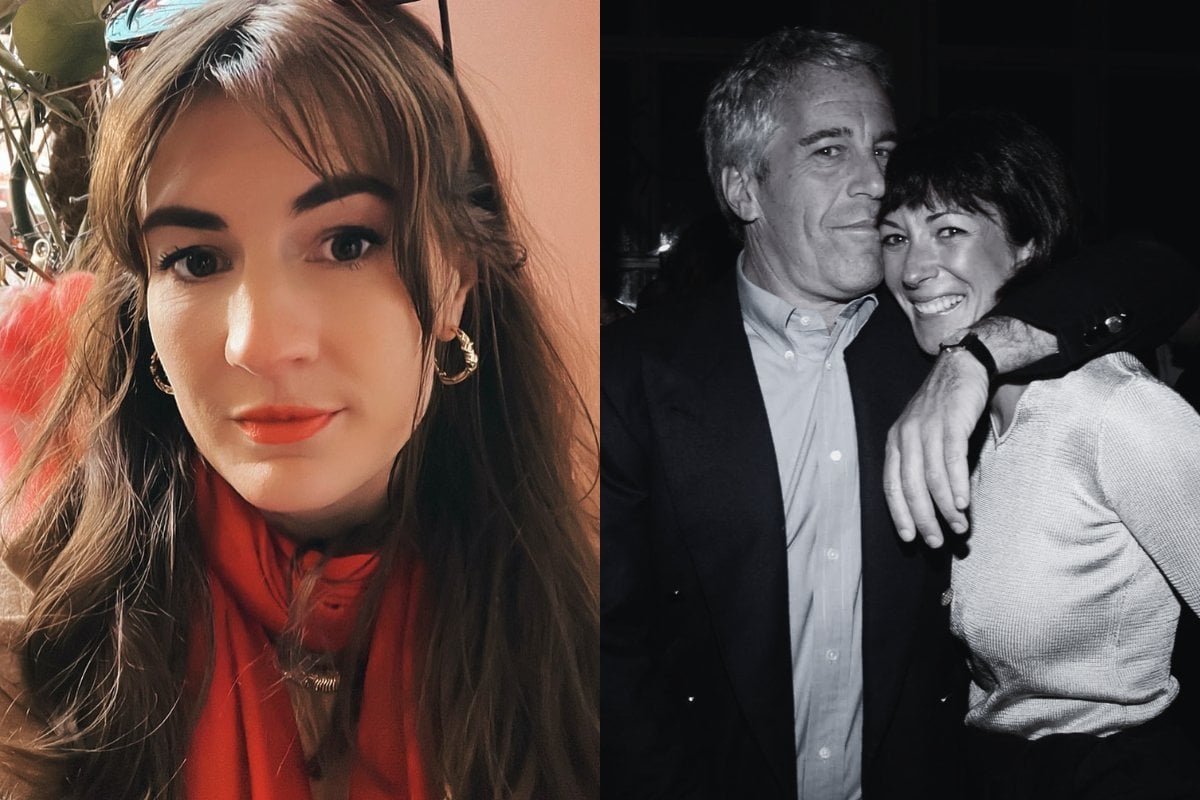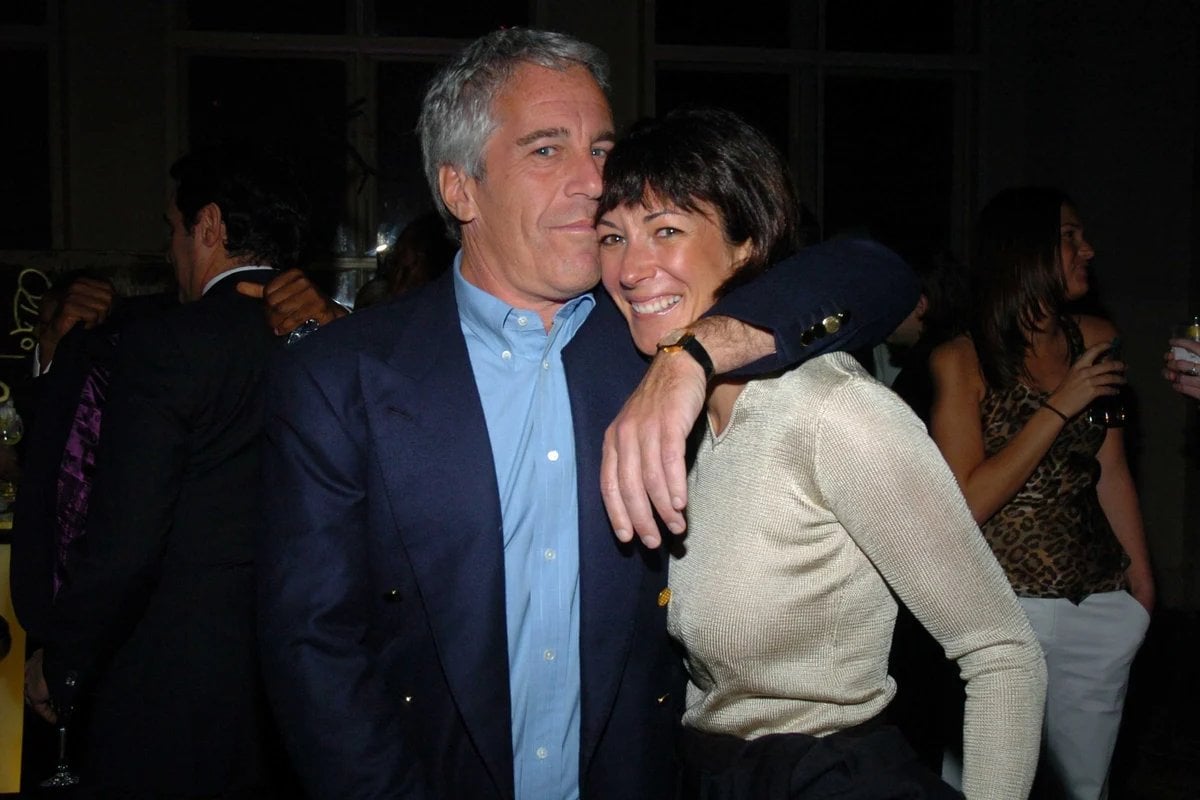
This story mentions sexual assault and child sexual abuse.
Australian journalist Lucia Osborne-Crowley might just be one of the most qualified women on the planet to bring us the untold stories of the women at the centre of billionaire paedophile Jeffrey Epstein's sex-trafficking ring - though not everyone agrees.
Not only was she one of only four journalists allowed in the courtroom for the trial of Ghislaine Maxwell, the British socialite jailed for procuring young girls for Epstein, but she also has the kind of up-close understanding of abuse and its lasting scars that no one should be burdened with.
Watch: Ghislaine Maxwell has been sentenced to 20 years in prison. Post continues below.
Having experienced sexual abuse by a non-family member from the age of nine, and then a violent rape at the hands of a stranger when she was just 15, the skilled writer doesn't turn away from integrating her own lived experience into the way she reports on the story, something she has expanded on in her latest book, Lasting Harm, that explores the legacy of trauma experienced by some of Epstein's victims, decades on.
"I have been accused often of being very biased," she says, "but the point I try and make in the book is that obviously we have these historic ideas of both journalists and lawyers having to be 'objective' in some sense, but actually, I would challenge that, because I think what we see as objective is very gendered. It is historically patriarchal."
